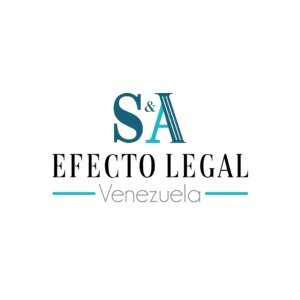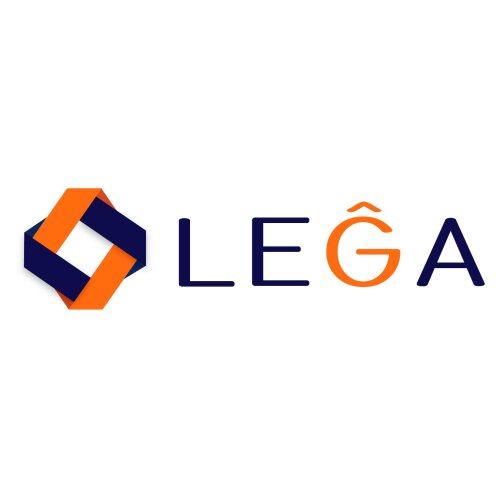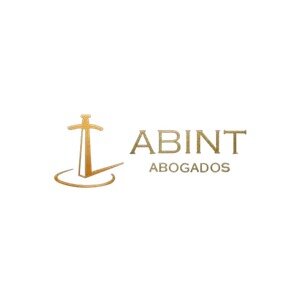Best Restructuring & Insolvency Lawyers in Venezuela
Share your needs with us, get contacted by law firms.
Free. Takes 2 min.
Or refine your search by selecting a city:
List of the best lawyers in Venezuela
About Restructuring & Insolvency Law in Venezuela
Restructuring and insolvency law in Venezuela is the set of legal rules and procedures that govern how individuals and businesses handle financial distress, inability to pay debts, and potential financial recovery or liquidation. The aim is to provide mechanisms either for the revival of financially troubled entities through restructuring or to ensure an orderly liquidation for those who cannot recover. Venezuelan law follows civil law traditions and is primarily outlined in the Commercial Code, as well as supplementary regulations and case law. Economic challenges in recent years have led to increasing importance of these procedures for both creditors and debtors.
Why You May Need a Lawyer
Dealing with restructuring or insolvency in Venezuela involves complex procedures and significant legal implications, making skilled legal help essential. Common situations that may require a lawyer include:
- When your business is facing serious financial trouble and you need to evaluate restructuring options
- Negotiating with creditors or suppliers for debt settlements or renegotiations
- Initiating or responding to bankruptcy proceedings, whether as a debtor or creditor
- Managing asset protection or understanding your liabilities during insolvency
- Ensuring compliance with Venezuelan legal requirements during reorganization or liquidation
- Pursuing or defending against claims of preferential treatment or improper asset transfers
- Navigating the impact of insolvency on contracts, employment, and ongoing business relationships
A qualified lawyer can guide you through each step, safeguarding your rights and maximizing your financial position.
Local Laws Overview
Venezuelan restructuring and insolvency laws are mainly governed by the Venezuelan Commercial Code (Código de Comercio). The Commercial Code provides for two principal paths:
- Preventive Arrangements (Arreglo Preventivo): A form of restructuring that allows debtors to propose payment plans and work out debts with creditors, usually to avoid formal bankruptcy. This process is intended to preserve economically viable businesses.
- Bankruptcy (Quiebra): Formal insolvency procedure where the debtor's assets are liquidated and distributed among creditors. Bankruptcy can be either voluntary (initiated by the debtor) or involuntary (initiated by creditors).
Key points under Venezuelan law include:
- Both individuals and legal entities can be subject to insolvency proceedings.
- The court oversees the entire process and appoints official receivers or administrators.
- Once proceedings start, creditors must declare their claims within established timeframes.
- Certain debts and creditors, such as employees or secured creditors, may have preferential rights in the distribution of assets.
- Not all debts are dischargeable - some obligations remain even after bankruptcy.
- The National Superintendent of Insolvency (Superintendencia Nacional de Insolvencia) may play a supervisory role in some cases.
These laws are subject to modifications, and their application can be affected by ongoing economic reforms and judicial practices.
Frequently Asked Questions
What is the difference between restructuring and bankruptcy in Venezuela?
Restructuring, usually through preventive arrangements, seeks to reorganize debts and allow the business or individual to continue operating under new payment plans. Bankruptcy leads to liquidation of assets to pay creditors and may result in the closure of the business.
Can individuals, and not just companies, declare bankruptcy in Venezuela?
Yes, both individuals and legal entities can declare bankruptcy under Venezuelan law.
What is the role of the court in insolvency proceedings?
The court oversees the insolvency process, appoints officials, validates claims, approves settlements or liquidation, and ensures compliance with legal procedures.
What happens to employee rights during bankruptcy?
Employee claims, such as unpaid salaries and benefits, typically receive preferential treatment and are paid before many other types of creditors.
Can foreign creditors participate in Venezuelan insolvency processes?
Yes, foreign creditors can participate and file their claims, subject to Venezuelan legal procedures and deadlines.
Are there restrictions on company directors during or after bankruptcy?
Yes, directors of insolvent companies may face restrictions, including disqualification from managing businesses, and could be subject to liability for wrongdoing.
How long does the insolvency process usually take?
The duration varies depending on the complexity of the case, the number of creditors, and court workload, but processes can often take months or even several years.
Is it possible to appeal insolvency court decisions?
Yes, certain decisions made by insolvency courts can be appealed to higher courts under Venezuelan law.
What happens to ongoing contracts during insolvency?
Certain contracts may be suspended or terminated, while others could be renegotiated. The insolvency administrator may determine which contracts to maintain for the benefit of creditors.
Can insolvency proceedings help protect a debtor from creditor lawsuits?
Yes, once proceedings are formally initiated, there are usually stays or suspensions of individual lawsuits, forcing creditors to participate in the collective process.
Additional Resources
If you need more information or support related to restructuring and insolvency in Venezuela, consider the following organizations and resources:
- National Superintendent of Insolvency (Superintendencia Nacional de Insolvencia): The official government body overseeing insolvency matters.
- Venezuelan Bar Association (Federación de Colegios de Abogados de Venezuela): Can help you find specialized legal professionals in restructuring and insolvency.
- Commerce and Industry Chambers: These often provide guidance and support for businesses facing financial distress.
- Academic Institutions: Law faculties in major universities may publish guides and host events about insolvency law.
- Legal Aid Organizations: Non-governmental organizations that sometimes offer assistance to small businesses or individuals unable to afford private counsel.
Next Steps
If you believe you require legal assistance related to restructuring or insolvency in Venezuela, consider taking the following steps:
- Gather all relevant financial documents, including debts, assets, contracts, and correspondence with creditors.
- Identify your main goals, whether you wish to reorganize your finances, negotiate with creditors, or prepare for possible liquidation.
- Consult with a qualified lawyer experienced in Venezuelan insolvency law. They can provide an initial assessment and outline your rights, obligations, and options.
- Follow legal advice carefully, meet all deadlines, and keep thorough records of all proceedings and communications.
- Stay informed about your legal process and do not hesitate to ask your lawyer questions to ensure you understand each step.
Early legal advice can make a crucial difference in protecting your interests and facilitating a successful outcome in restructuring or insolvency matters in Venezuela.
Lawzana helps you find the best lawyers and law firms in Venezuela through a curated and pre-screened list of qualified legal professionals. Our platform offers rankings and detailed profiles of attorneys and law firms, allowing you to compare based on practice areas, including Restructuring & Insolvency, experience, and client feedback.
Each profile includes a description of the firm's areas of practice, client reviews, team members and partners, year of establishment, spoken languages, office locations, contact information, social media presence, and any published articles or resources. Most firms on our platform speak English and are experienced in both local and international legal matters.
Get a quote from top-rated law firms in Venezuela — quickly, securely, and without unnecessary hassle.
Disclaimer:
The information provided on this page is for general informational purposes only and does not constitute legal advice. While we strive to ensure the accuracy and relevance of the content, legal information may change over time, and interpretations of the law can vary. You should always consult with a qualified legal professional for advice specific to your situation.
We disclaim all liability for actions taken or not taken based on the content of this page. If you believe any information is incorrect or outdated, please contact us, and we will review and update it where appropriate.
Browse restructuring & insolvency law firms by city in Venezuela
Refine your search by selecting a city.













